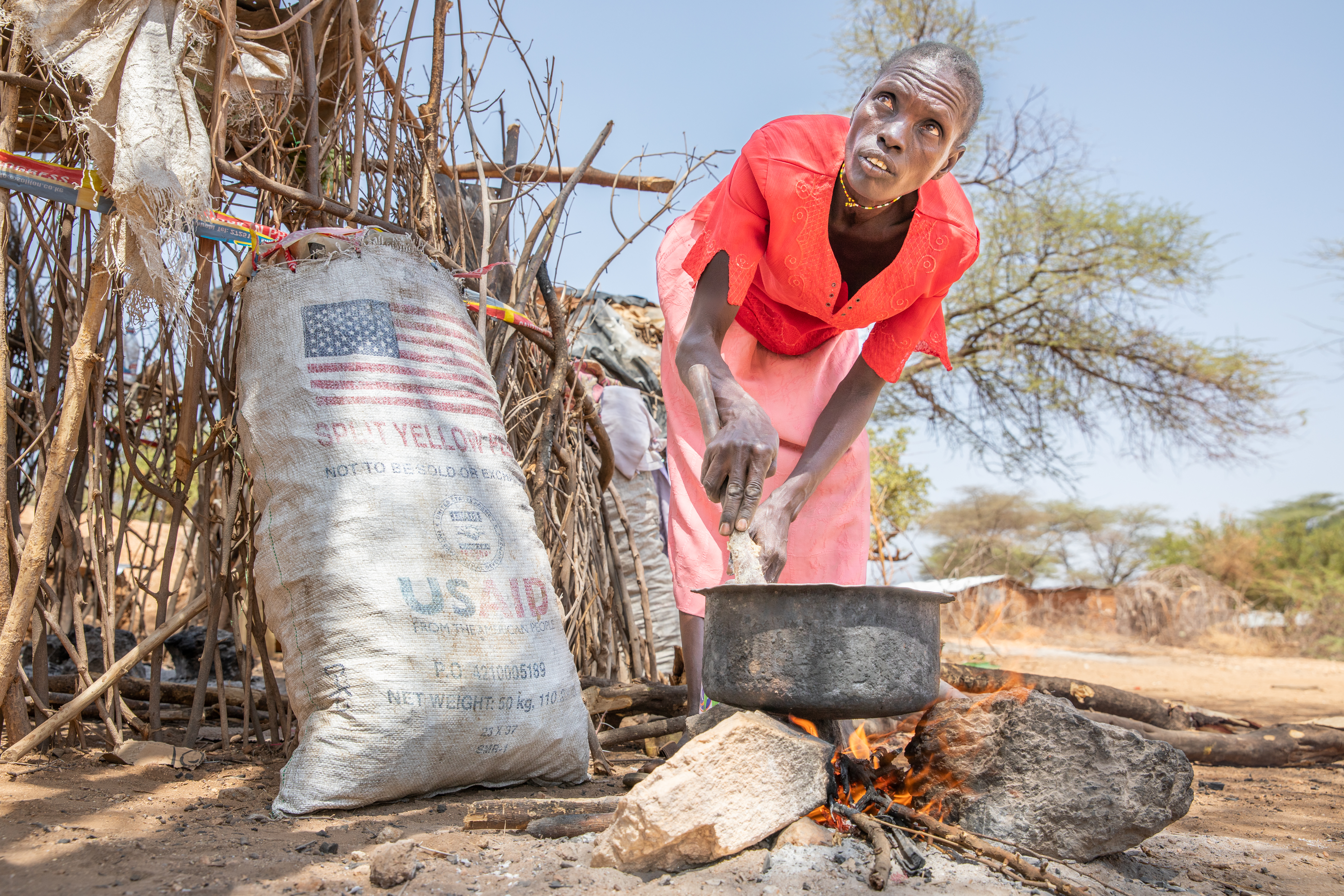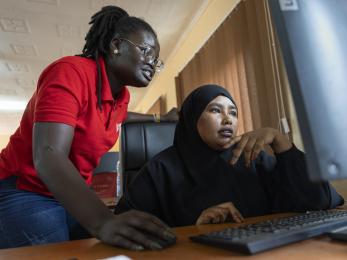Women stake their claim in the land of machismo

Deep in the verdant highlands of northern Guatemala, property disputes are all too common. Their roots may date to the Spanish conquistadors, but today we’re giving indigenous communities in the Alta Verapaz region the tools to resolve them without resorting to lawyers or guns.
And what’s even more remarkable: It’s women who are now leading the way.
Many of the land conflicts in this part of Guatemala seem mundane — cases of overlapping boundaries between communities, tussles over access to farmland, accusations of encroaching on neighboring property. But it is crucial work in rural Guatemala, where holding title to your own land means personal and financial security. It gives farmers the freedom to invest in their land, and banks the collateral to invest in the farmers.
Women, however, have lacked a seat at the negotiating table. Since Mercy Corps first started mediating land conflicts here nearly a decade ago, fewer than 5 percent of participants in the resolution process have been women. There is a pervasive machismo culture in Guatemala, where half of all respondents to a 2005 newspaper survey agreed that the ideal woman is “meek, docile, sweet and submissive.” That the man controls the land is too often a fact of life.
But that means women’s concerns, including the security of children and access to drinking water, are usually ignored during negotiations. Even worse, widows whose names are not on land titles often lose their inheritance rights. We’re working to change that by training women to lead the conflict resolution process.
Since receiving their first case last fall, the eight female mediators we’ve hired and trained have already resolved three land conflicts, with seven more in process.
Even more impressive are the number of people the mediators have reached through trainings in topics such as self-esteem, alternative dispute resolution, local governing structures and land issues: 158 women who were selected by their communities to become leaders in mediation, and another 1,800 women who’ve been trained by those leaders.
Our goal is to empower all of these women with the skills and information they need to play a role in shaping their community, especially when it comes to land.
By all accounts, the mediators’ efforts are making a difference. The trainings “removed a blindfold … it was like they sprung me from jail,” one widow in her 50s told me. She’s now motivated to take charge of her property and plant corn, “because you've taught us to feel valued, not like before when the men were valuable and the women were not.”
At the local office of the government’s land-rights division, which is charged with resolving disputes, the lead official said he was skeptical at first of whether anyone would listen to these women, especially since most are under the age of 30. “I was a little nervous because the conflicts can be very serious,” he told me. “But the reaction from the communities has been very positive.”
A history of inequity

In addition to gender issues, these women mediators are facing two underlying causes of land conflict here: poverty and inequality.
About 80 percent of the population in Guatemala lives in poverty, partly because fertile land — the most important means of production in this agricultural economy — is concentrated in the hands of a few. It's said that roughly two percent of the population owns 70 percent of the country's productive farmland.
In the generations since Spanish conquistadores literally entitled themselves to traditional Mayan lands, the lack of a functioning land registry in Guatemala favored the educated classes and led to overlapping property boundaries. The country's 36-year civil war, which began in 1960 and dislocated up to a million people — mostly indigenous peasants — further exacerbated the unequal distribution of land.
With the 1996 Peace Accords came a series of land reform commitments, but they've advanced only in fits and starts. The government bodies responsible for helping peasants acquire and develop land are underfinanced and overwhelmed. And when ownership is in dispute, there’s no hope of government assistance until the question of who owns the land is settled.
At the vanguard of mediation
Mercy Corps has been at the vanguard of mediating land conflicts in Alta Verapaz, where the collapse in coffee prices in 2000 triggered widespread unrest.
Many coffee growers went bankrupt, dismissing farmers who had worked and sometimes lived on the land for generations. In many instances, communities occupied the farms and demanded retroactive wages and pensions. Violent altercations and evictions often followed.
Mercy Corps piloted its first mediation program in 2003, and since then has peacefully resolved more than 300 land conflicts that have benefited more than 15,000 families. It’s a more accessible, cheaper alternative than taking a case to court — especially for people who often live on only dollars a day.
We’ve also branched into related efforts, like helping indigenous communities pay for their land by growing produce for commercial markets, and spearheading advocacy efforts to make government policy more responsive to indigenous farmers.
Our latest initiative hinges on the team of women who work out of a spartan, one-room office in the tiny, sun-baked town of Chisec, near Alta Verapaz’s border with Mexico and with the province that houses Tikal and other Mayan archeological sites. Its traditional town square is surrounded by food carts steaming with grilled meats, three-wheeled tuk-tuks awaiting passengers, and a concrete soccer pitch that’s busy night and day.
The program — Empowering Women's Leadership in Conflict Resolution, or EMA for short in Spanish — has lofty aims. More than simply resolving disputes over land, the eight female mediators, all of whom are indigenous Maya, are building momentum for a cultural shift away from that machismo attitude and toward gender equality.
That means walking hours from the nearest bus stop to educate women about everything from the nation’s land laws to political advocacy to gender dynamics. And writing and broadcasting a weekly radio show that informs women about our mediation services and how women are participating. Women who have been to the trainings receive a guipil, traditional blouses worn here, emblazoned with the program’s acronym, EMA. They, in turn, become leaders — and elevate the position of women — in their own communities.
Helping women move forward

During my visit last week, the promise of our efforts came to life when one of our youngest mediators, 21-year-old Amanda Sacul, faced a chauvinistic crowd at a meeting of San Antonio de Las Cuevas. The community had gathered to propose a solution to a conflict with their neighbors. Both laid claim to several plots of land.
Most of the three dozen or so women in attendance sat on benches in the middle of an open-air meeting house, some with kids in their arms or tugging on their long skirts. A smaller but more vocal group of men stood around a desk near the front.
It didn’t take long for the men to take over the meeting, crowding around the map Amanda had drawn showing the plots in dispute. Just when the meeting was at risk of breaking down, Amanda extricated herself from the men, took a few strides toward the benches, and addressed the women: “We want your opinion, too — not just the opinion of the men.”
A few minutes later, she was sitting down facing the women, listening to their thoughts and using a blue marker to outline their own proposal on how to divvy up the land. It was a gutsy move, one that reflected her motivation for becoming a land-conflict mediator.
“For many years the men have been the head of the household, the authority, and the woman has remained behind — in education and in many other social areas,” Amanda explained to me earlier. “So for women to move forward, so everyone can advance — that's my biggest dream.”
The women’s proposal — which called for more open space rather than crowding homesteads near the community school — was dismissed almost immediately by one of the men as a “bad” idea. Many in the crowd chuckled; even our staff had to smile. (Later, they recalled the moment and shook their heads at the machismo of the community.)
Still, just to be heard in a setting like that is new for women. And the following day, the same community would send one of its Mercy Corps-trained female leaders to represent them at the mediation table. It marked a small step in the right direction.
Slowly but surely, we’re helping women stake their claim in the land of machismo.


